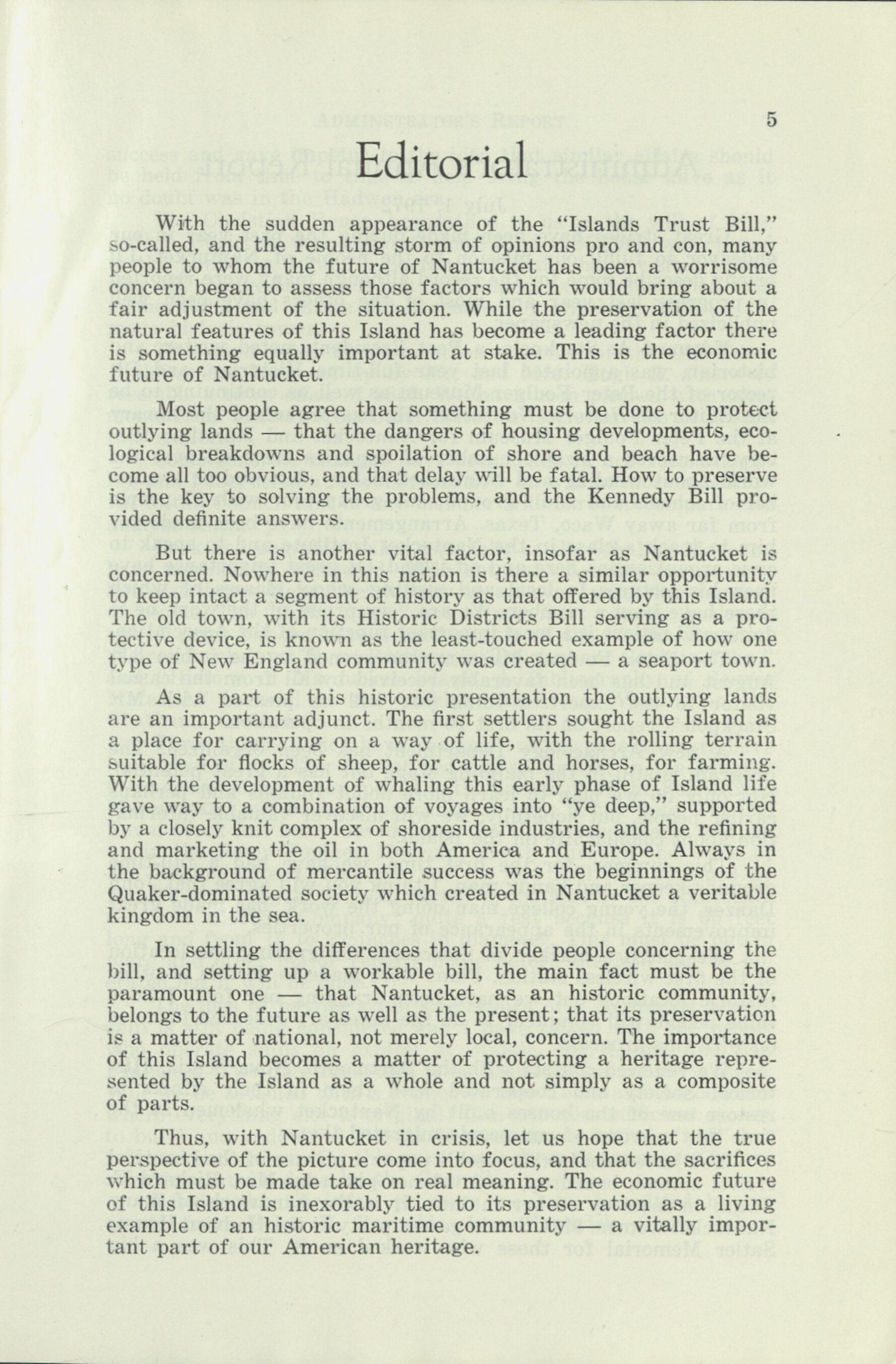
2 minute read
Editorial
5
With the sudden appearance of the "Islands Trust Bill," so-called, and the resulting storm of opinions pro and con, many people to whom the future of Nantucket has been a worrisome concern began to assess those factors which would bring about a fair adjustment of the situation. While the preservation of the natural features of this Island has become a leading factor there is something equally important at stake. This is the economic future of Nantucket.
Most people agree that something must be done to protect outlying lands — that the dangers of housing developments, ecological breakdowns and spoliation of shore and beach have become all too obvious, and that delay will be fatal. How to preserve is the key to solving the problems, and the Kennedy Bill provided definite answers.
But there is another vital factor, insofar as Nantucket is concerned. Nowhere in this nation is there a similar opportunity to keep intact a segment of history as that offered by this Island. The old town, with its Historic Districts Bill serving as a protective device, is known as the least-touched example of how one type of New England community was created — a seaport town.
As a part of this historic presentation the outlying lands are an important adjunct. The first settlers sought the Island as a place for carrying on a way of life, with the rolling terrain suitable for flocks of sheep, for cattle and horses, for farming. With the development of whaling this early phase of Island life gave way to a combination of voyages into "ye deep," supported by a closely knit complex of shoreside industries, and the refining and marketing the oil in both America and Europe. Always in the background of mercantile success was the beginnings of the Quaker-dominated society which created in Nantucket a veritable kingdom in the sea.
In settling the differences that divide people concerning the bill, and setting up a workable bill, the main fact must be the paramount one — that Nantucket, as an historic community, belongs to the future as well as the present; that its preservation is a matter of national, not merely local, concern. The importance of this Island becomes a matter of protecting a heritage represented by the Island as a whole and not simply as a composite of parts.
Thus, with Nantucket in crisis, let us hope that the true perspective of the picture come into focus, and that the sacrifices which must be made take on real meaning. The economic future of this Island is inexorably tied to its preservation as a living example of an historic maritime community — a vitally important part of our American heritage.








